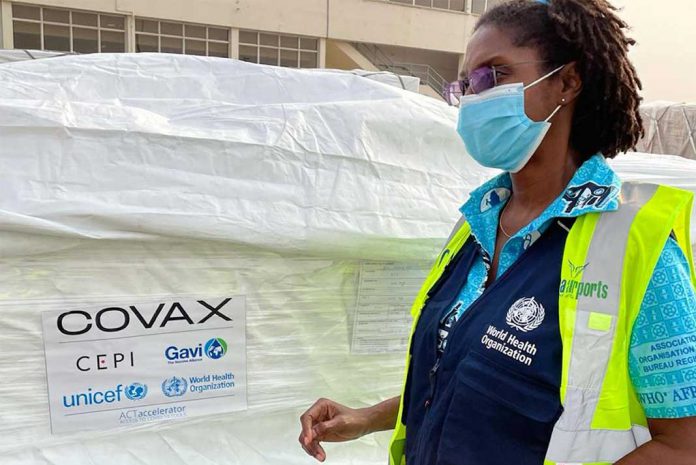The first shipment of coronavirus vaccines has arrived this week at Accra airport in Ghana, this is through the World Health Organization (WHO) in collaboration with UNICEF to enable the beginning of COVAX plan that provides coronavirus vaccines for free to the low and middle-income countries.
Ghana is a country of almost 30 million people, it didn’t record very high infection rate of coronavirus like wealthier countries but they recorded about 81,245 cases and 584 deaths till now.
Ghana is the first country that receives 600,000 doses of coronavirus vaccines of Astrazeneca / Oxford through COVAX facility which plans to deliver about 2 billion vaccine doses in 2021 in the world’s poorest 92 countries, this is a global effort to fight the Covid-19 pandemic and make sure that all citizens have the accessibility to vaccines.
Astrazeneca / Oxford vaccine is considered easier to distribute among countries as it doesn’t require the extremely low temperature storage as other vaccines like Pfizer and Moderna vaccines.
Hassan Damluji, deputy director for global policy and advocacy at the Bill & Melinda Gates Foundation said in an interview with CNBC
“We know that it normally takes decades between a vaccine being developed and used for the first time in rich countries and then getting to the poorest people in the world. So for Ghana to receive their first shipment, only three months from the very first vaccine rollouts in the world, is beyond exceptional,” he said. “It’s by far the fastest ever.”
The shipment that arrived Ghana was produced in India by India’s Serum Institute, which was granted the right to manufacture Astrazeneca / Oxford vaccine using Astrazeneca’s formula. By the arrival of this shipment Ghana can start the vaccination process almost by the next week, the priority would be for the frontline medical workers, people aged over 60 and people with preexisting health conditions.
“Today marks the historic moment for which we have been planning and working so hard. With the first shipment of doses, we can make good on the promise of the COVAX facility to ensure people from less wealthy countries are not left behind in the race for life-saving vaccines,” said Henrietta Fore, executive director of UNICEF, which delivered the vaccines.
On the other hand, some activists say that they have serious concerns regarding the COVAX initiative objective that covers about 20% to 30% of the population in the countries that will receive the vaccine donations, even if this objective is reached but those countries will still vulnerable to the continuous waves of this pandemic as most experts stated that at least 70% of the population will need protection against Covid-19 to reach the herd immunity.

